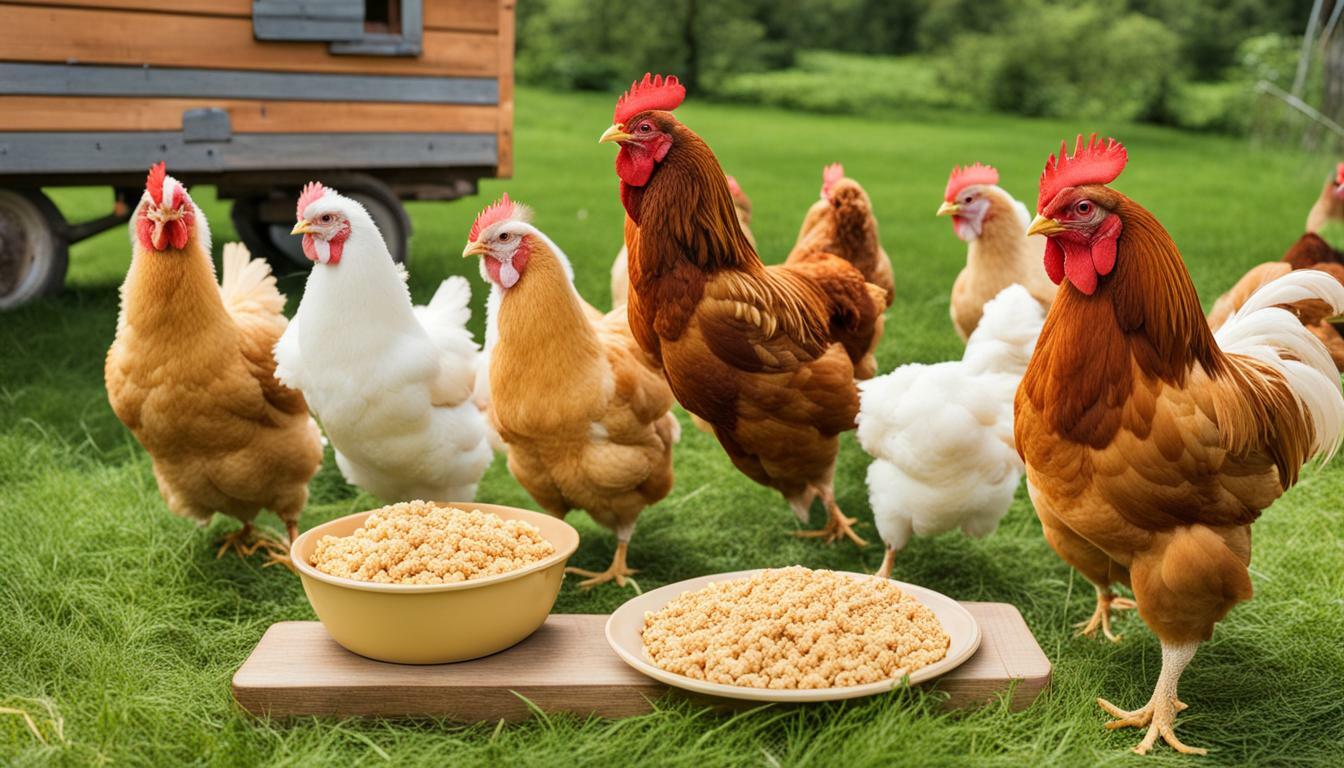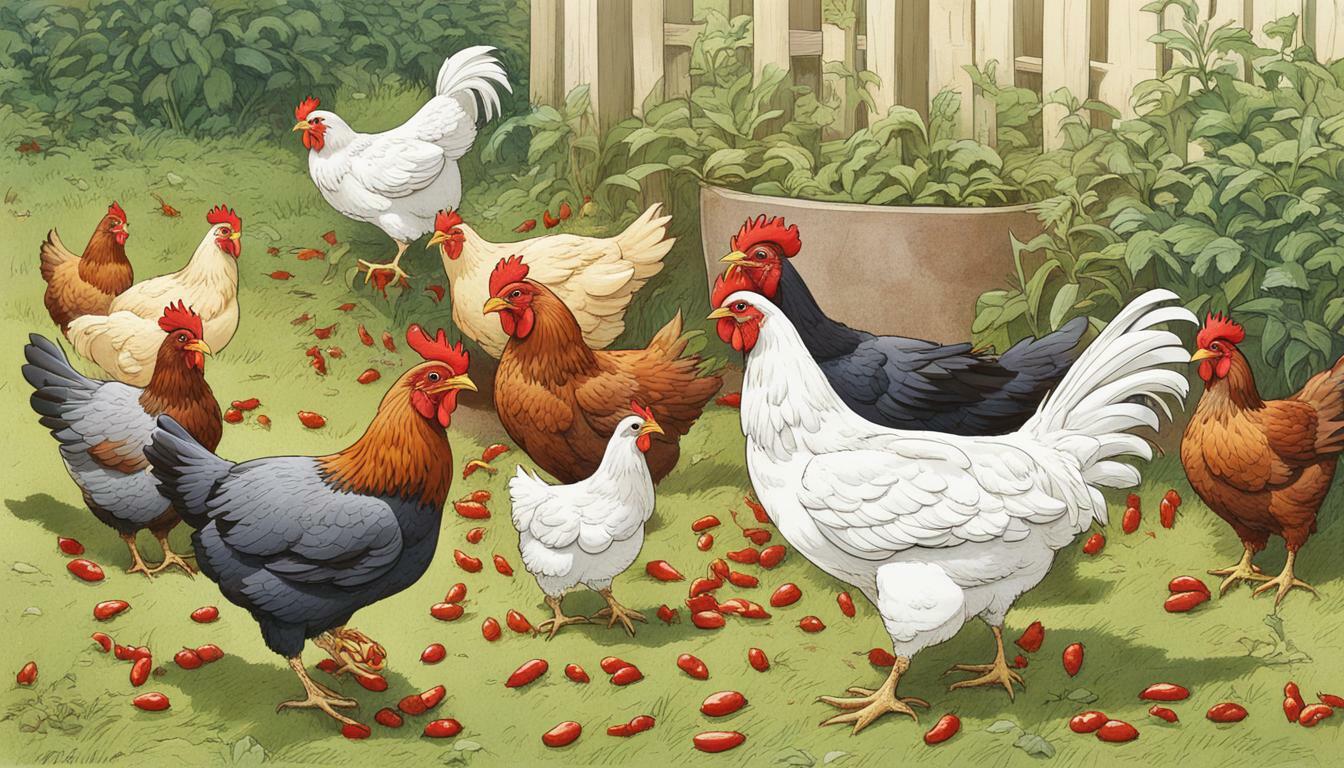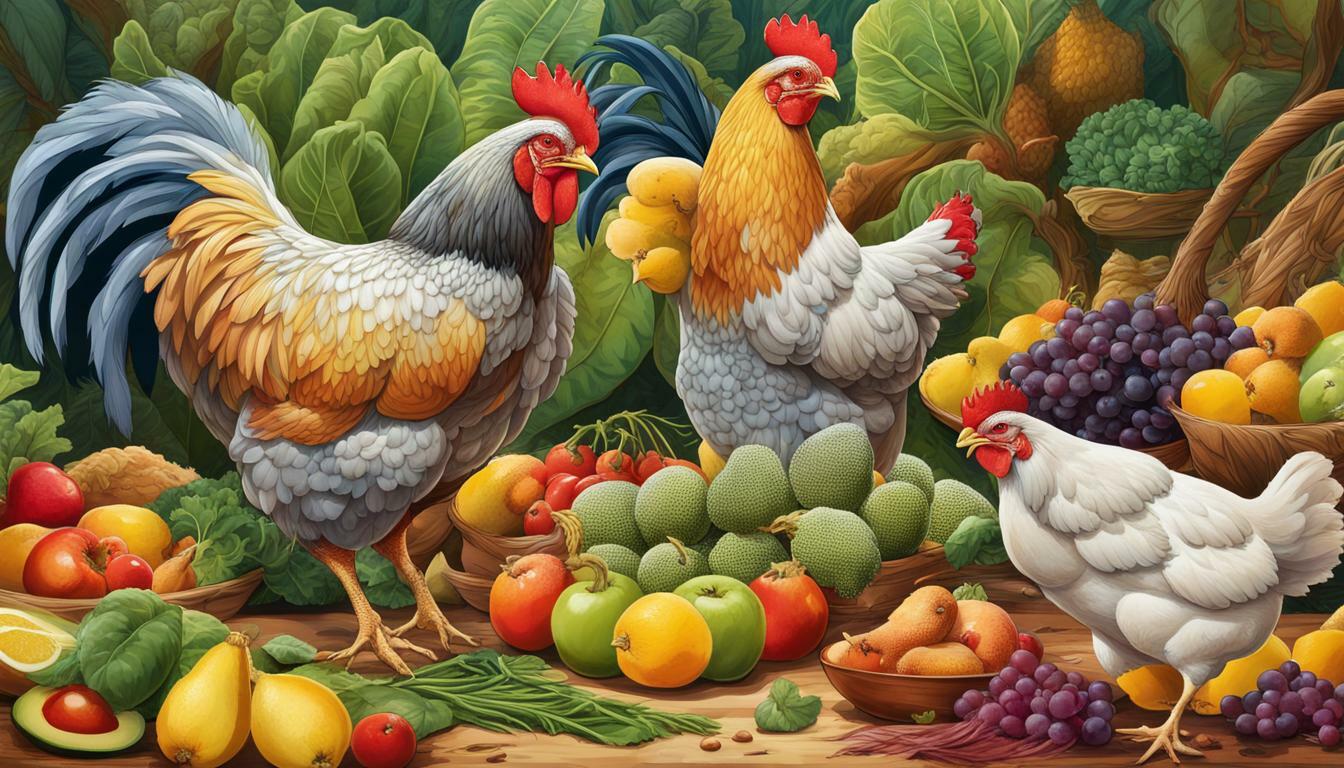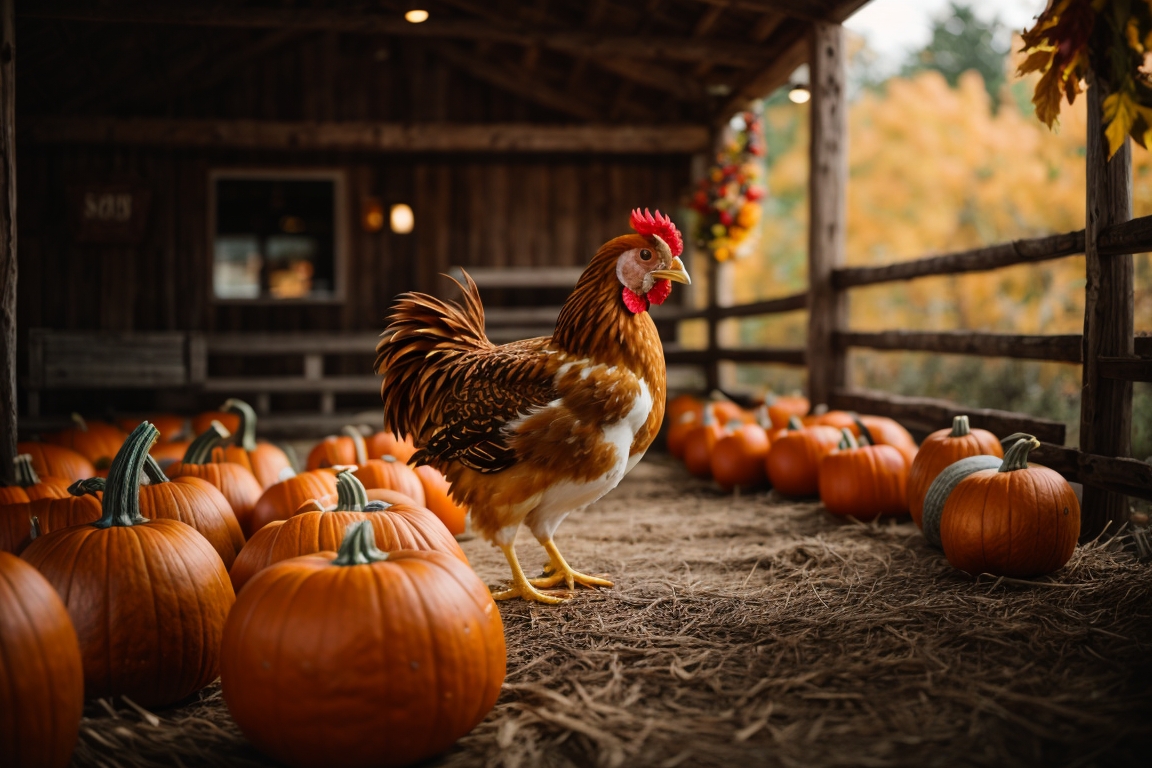Can Chickens Eat Rice Krispies? Find Out Here!

Table of content:
- Chickens and Their Diet
- Are Rice Krispies Healthy for Backyard Chickens?
- Healthier Treats and Supplemental Feeds
- Potential Downsides of Feeding Chickens Rice Krispies
- Best Practices When Feeding Chickens Cereal
- FAQs on Chickens and Cereal
- Conclusion: Rice Krispies as an Occasional Chicken Treat
- Final Thoughts
Rice Krispies cereal by Kellogg’s is a popular breakfast cereal made of puffed rice grains and sweetened with sugar and molasses. Chickens are omnivores that enjoy a varied diet, so can chickens eat Rice Krispies cereal? Let’s explore!
Chickens and Their Diet
Chickens are remarkable creatures that thrive on a diverse diet. As backyard flock keepers know, chickens relish kitchen scraps and garden waste along with their formulated feed. Their diverse palate allows us to offer treats and supplemental feeds. But we must choose these tidbits wisely, as not all human foods are safe.
Chickens have unique digestive systems suited for their natural diet. Their beaks are perfect for pecking and crushing food. Ingested items move to their crop, then to the grit-filled gizzard which grinds food further. Finally, food reaches their intestinal tract for nutrient absorption. This system allows chickens to digest a wide array of foods.
Their natural diet consists mainly of seeds, grains, plants, and insects. As omnivores, chickens can eat both plant and animal matter. Offering a balanced diet helps these birds thrive. Their feed should deliver crucial minerals, vitamins, carbohydrates, and proteins. But there is room for supplemental feeds too.
Are Rice Krispies Healthy for Backyard Chickens?
So, can chickens eat Rice Krispies? The answer is yes, in moderation. Rice Krispies likely won’t harm chickens. But are these processed cereals providing real nutritional value? Let’s break it down.
Rice Krispies contain mostly simple carbs from puffed rice. The main ingredients are rice, sugar, and molasses. Rice supplies some B vitamins and minerals. However, this processed cereal lacks the nutrition of whole grains.
The molasses adds iron and calcium. However, the sugar content makes it more of a treat than a healthy feed item. Too much sugar can cause obesity and other issues in backyard flocks.
In small amounts, most chickens will eagerly eat Rice Krispies. The cereal is not toxic, and the ingredients are chicken-safe. But rice-based cereals supply empty calories and few nutrients. While a few beaks pecking at Rice Krispies won’t harm a flock, it shouldn’t be a dietary staple.
Healthier Treats and Supplemental Feeds
While processed cereals shouldn’t make up a large part of their diet, chickens can benefit from treats and variety. Here are some healthier options:
- Fresh fruits and vegetables – try chopped apples, melons, leafy greens, etc.
- Cooked pasta, brown rice, oats
- Dried insects like mealworms
- Chopped nuts, seeds, dried fruits
- Plain yogurt, cottage cheese, scrambled eggs
- Garden waste like fallen apples and leafy debris
These items give bored backyard chickens environmental enrichment. They also provide nutritional variety. The key is moderating amounts of treats and human foods.
Focus treats on unprocessed, nutrient-dense foods. Items high in sugar or salt should be occasional. Adjust amounts given the chicken’s size and energy needs. Free-ranging flocks get more exercise, needing extra calories. Keep an eye on your chickens’ body condition; adjust if birds become overweight.
Potential Downsides of Feeding Chickens Rice Krispies
Sharing your morning cereal sounds like an easy way to bond with chickens. But beyond lack of nutrition, there are some risks with Rice Krispies:
- Choking hazard – dry cereals can obstruct crops or gizzards
- Intestinal issues from excess sugar
- Nutritional deficiencies from “empty calorie” foods
- Quick weight gain leading to obesity
- Attracting rodents and pests to the feed source
- Formation of bad habits, food aggression, etc.
- Reduced appetite for balanced feed
To avoid these risks, limit cereal treats. If allowing free-choice access, use a small, shallow dish. Supervise your flock during treat time. Never leave large amounts unattended.
If issues like choking, digestive distress, or weight gain occur, stop cereal treats. Monitor chickens closely when introducing new foods. Discontinue if any hen has an adverse reaction.
Best Practices When Feeding Chickens Cereal
When giving cereal as a supplemental feed, keep best practices in mind:
- Stick to whole grain, low-sugar varieties
- Feed cereals only occasionally, not daily
- Provide tiny portions – a handful per chicken at most
- Avoid letting it get wet and moldy
- Don’t allow chickens unlimited access
- Monitor for signs of digestive upset
- Adjust amounts based on chickens’ weight and energy output
- Discontinue use if any concerns arise
Following these tips will help minimize risks when feeding cereal grains to backyard flocks.
FAQs on Chickens and Cereal
Here are direct answers to some frequently asked questions about feeding cereal to chickens:
Can chickens eat cereal?
Yes, chickens can eat small amounts of low-sugar cereals as an occasional snack. Stick to healthy whole grain cereals like plain oats or shredded wheat.
Is Rice Krispies bad for chickens?
Rice Krispies won’t directly harm chickens. But the high sugar content provides little nutrition. This cereal is best reserved as a rare treat in tiny portions.
What human foods can chickens eat?
Chickens can eat a variety of human foods like fresh produce, cooked rice, plain yogurt, and scrambled eggs. Avoid highly processed items high in sugar, salt, or fat.
Are Kellogg’s Rice Krispies OK for chickens?
Kellogg’s Rice Krispies won’t hurt chickens in moderation. However, the cereal is high in sugar with minimal nutrition. It shouldn’t make up a substantial part of their diet.
Will Rice Krispies hurt my chickens?
In small portions, Rice Krispies are unlikely to hurt chickens. However overindulging could lead to obesity, digestive issues, or nutritional deficiencies down the line.
Conclusion: Rice Krispies as an Occasional Chicken Treat
In summary, Rice Krispies cereal won’t directly harm backyard chickens. However, these sugary grains supply minimal nutrition. Whole grains and fresh foods make healthier supplements to a balanced diet.
Limit puffed rice cereals to occasional treats. Small amounts posed minimal risk in our experience. But moderation is key, as excess sugar and carbs could cause long-term harm.
While chickens may greedily gobble down Rice Krispies, they provide empty calories. There are better ways to supplement your flock’s diet and bond with your hens. Offer treats sparingly, focusing on nutritious variety.
With some precautions, the occasional Rice Krispie sprinkled from your hand can be a safe snack. Just don’t let it become a staple in your chickens’ diet. With a little common sense and moderation, you can let your flock enjoy a cereal treat now and then.
Final Thoughts
Rice Krispies and other cereals are best reserved as rare treats for chickens. While not toxic, their lack of nutrition and high sugar make them poor dietary staples. Enjoy the amusement of tossing a few cereal bits without endangering your flock’s health long-term. And always prioritize balanced feed, clean water, and healthy treat supplements like fresh veggies. With a focus on chicken wellness, the occasional cereal tidbit won’t do harm. Just be cautious, and have fun bonding with your flock!
Welcome. I’m Adreena Shanum, the proud owner of this website, and I am incredibly passionate about animals, especially poultry. I founded adreenapets.com as a labor of love, stemming from my desire to share my knowledge and experiences with poultry enthusiasts worldwide.




